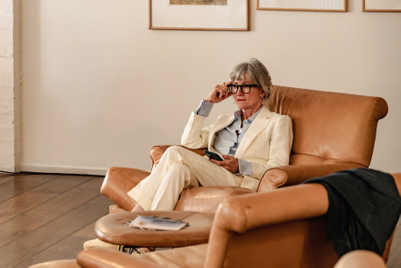
In a bid to bring its online community offline, the sharing-economy platform Airbnb created an exclusive experience for its hosts in Shanghai, inviting more than 250 guests into what looked like a giant Airbnb pop-up listing.
A temporary home was installed at 800 Show, a creative space in downtown Shanghai, for a one-day event in December to connect Airbnb’s often-fragmented online users via a shared experience in the real world.
The Idea
Airbnb worked with agency Jack Morton Worldwide to create its first-ever ‘Open’ festival in Asia—a brand activation concept the platform first launched in Los Angeles in 2016—that would bring hosts together to network and share stories.
“Airbnb is showing massive growth in China and understands that its hosts are essential to this, as they own the country’s most desired listings,” explains Phil Boyle, business director, China at Jack Morton.
China is set to become the room-sharing platform’s largest market—Shanghai alone has 20,000 listings and has hosted 600,000 Airbnb users—so brand building and customer loyalty were high on the agenda.
“This event was to be an opportunity [for the brand] to show some love, build loyalty and start an offline conversation between hosts,” Boyle says.
The live activation element was new for Airbnb in this part of the world, so Boyle and his team were under the microscope. “As this was the first time Airbnb had held this kind of event in China, all eyes were glued to the event. And with Airbnb co-founder, Nathan Blecharczyk, attending, the pressure was really on,” he says.

In the planning and execution stages, managing multiple stakeholders in various locations proved difficult. “With the Airbnb team in Beijing, and our team and the venue in Shanghai (and the fact that this was the first time Airbnb China had run an event on this scale), communication was always going to be
a challenge,” Boyle says.
“Putting a strong project leader on the event from day one, alongside a permanent creative director, was the solution to ensure that every detail was clearly taken care of.”
The Execution
To encourage interaction and build a sense of community, Jack Morton designed a number of hands-on experiences based around a central creative concept: ‘Welcome Home’.
“We wanted to create a space that felt like you were stepping into a giant Airbnb listing—from the front door, to the living room—to make it as relaxing as possible,” Boyle says.
For this to happen, venue selection was key. “After umpteen venue site visits and debates, we worked with 800 Show to turn the façade of the venue into that of a house —a challenge in itself due to height and venue restrictions.
“After rounds and rounds of negotiation with building engineers and local government we got our designs passed through. This was the scariest part,” Boyle admits.

“The original brief was to host an outdoor festival in September 2017, but with delays in schedules we moved the venue indoors on December 9.”
Then came the experience. “The majority of guests had never met before, so we needed to create multiple ways for them to interact with each other and share their stories of hosting guests,” he says.
Casual, group-based activities such as classes on cocktail making, brewing mulled wine (in the lead-up to Christmas), candle making and vintage house-key decoration were set-up across the venue. There was also a photography class to help hosts learn how to capture better photos of their listings.

To enhance the feeling of home, Jack Morton partnered with local suppliers to further align the American company with Chinese users. “We wanted each experience to be centred around Shanghai, and to use brands and partners who had a Shanghai story at their heart. So we burst out our local knowledge and found really interesting individual suppliers with a story, rather than big brands,” Boyle says.
In the spirit of sharing, a ‘Host Tree’ was erected in the garden, where hosts could leave messages and anecdotes. Some ‘superhosts’ and influencers were also invited to speak on stage about their experiences alongside co-founder Nathan Blecharczyk.


.jpg&h=334&w=500&q=100&v=20250320&c=1)


.jpg&h=334&w=500&q=100&v=20250320&c=1)

.png&h=334&w=500&q=100&v=20250320&c=1)
.jpg&h=334&w=500&q=100&v=20250320&c=1)



.jpg&h=268&w=401&q=100&v=20250320&c=1)





.jpg&h=268&w=401&q=100&v=20250320&c=1)
